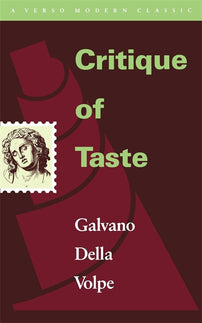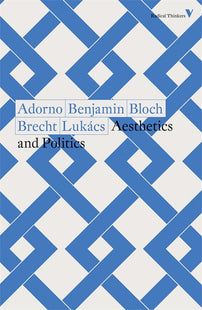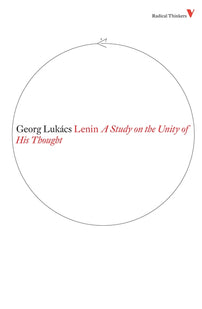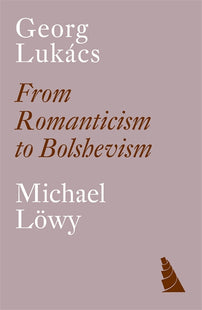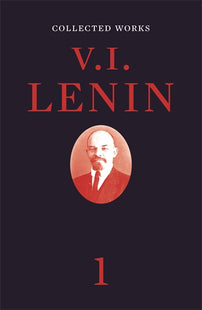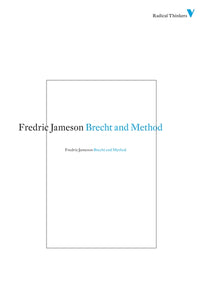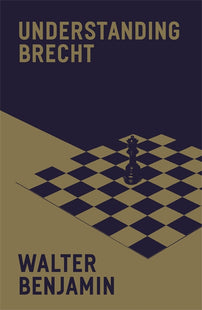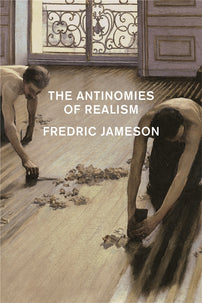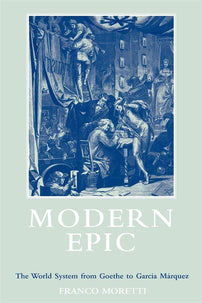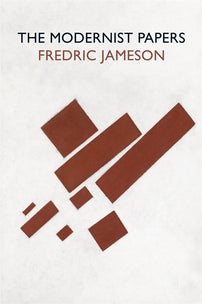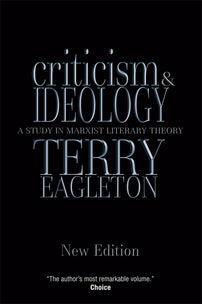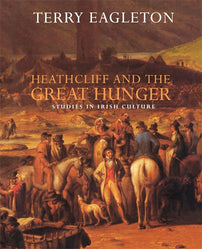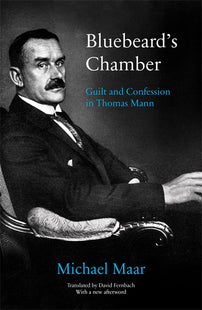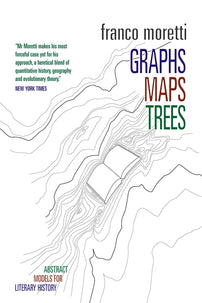Engels, Lenin, and the Poetic of Socialist Realism
Galvano Della Volpe's consideration of literary realism after Engels' famous remarks on Balzac and Lenin's on Tolstoy.
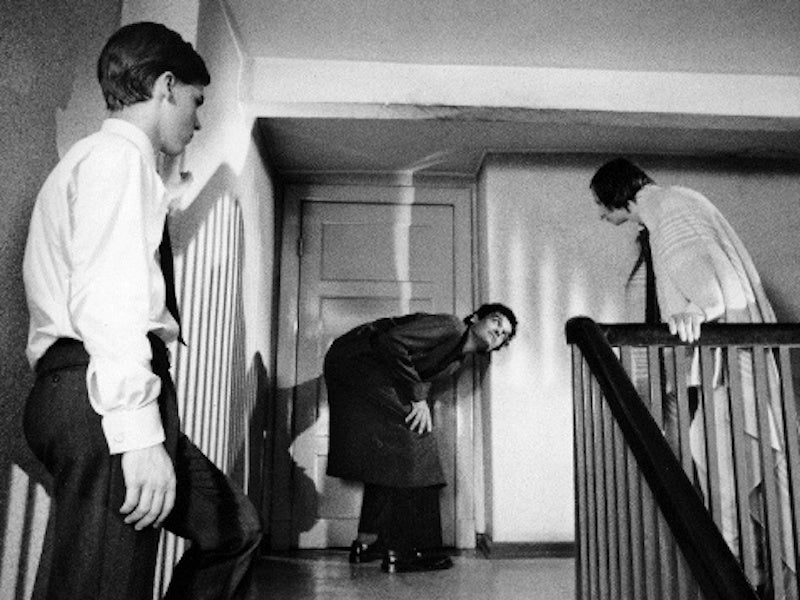
In Critique of Taste (1960) — published in Michael Caesar's translation by New Left Books in 1978 — Galvano Della Volpe, a preeminent philosopher within the post-war Italian Communist Party, develops a thoroughly materialist aesthetics that rejects the reductionism of Lukács on one side and the creeping idealism introduced by Croce (via Gramsci) on the other.
The essay below, which forms an appendix to the book, is a consideration of literary realism after Engels' famous remarks on Balzac and Lenin's on Tolstoy. In the final section, Della Volpe sketches a critique of Lukács' "critical realism."
We have drawn attention above to a number of critical errors in Plekhanov and Lukács. If we consider the nature of these errors, we are forced to the conclusion that their radical misinterpretations of the poetry of Ibsen and Flaubert are the clearest proof that these two critics have not understood the fundamental lesson of Engels's verdict on the realist writing of the politically reactionary Balzac — a lesson that was to be applied later by Lenin to the case of Tolstoy.
What does Engels say (Here too he was in agreement with Marx.) "The realism I allude to, may crop out even in spite of the author's opinions. Let me refer to an example. Balzac, whom I consider a far greater master of realism than all the Zolas..., in La Comèdie humaine gives us a most wonderfully realistic history of French 'society,' describing, chronicle-fashion, almost year by year from 1816 to 1848 the progressive inroads of the rising bourgeoisie upon the society of nobles, that reconstituted itself after 1815. . . . He describes how the last remnants of this, to him, model society gradually succumbed before the intrusion of the vulgar moneyed upstart, or were corrupted by him;... and around this central picture he groups a complete history of French society from which, even in economic details (for instance the re-arrangement of real and personal property after the Revolution) I have learned more than from all the professed historians, economists and statisticians of the period together. Well, Balzac was politically a Legitimist; his great work is a constant elegy on the irretrievable decay of good society, his sympathies are all with the class doomed to extinction. But for all that his satire is never keener, his irony never bitterer, than when he sets in motion the very men and women with whom he sympathizes most deeply — the nobles. And the only men of whom he always speaks with undisguised admiration, are his bitterest political antagonists, the republican heroes of the Cloitre Saint Méry, the men who at that time (1830-36) were indeed the representatives of the popular masses. That Balzac was thus compelled to go against his own class sympathies and political prejudices, that he saw the necessity of the downfall of his favourite nobles, and described them as people deserving no better fate; and that he saw the real men of the future where, for the time being, they alone were to be found — that I consider one of the greatest triumphs of realism...." For realism, he had already said in the same letter, "means, in my opinion, not only truth of detail, but also the faithful reproduction of typical characters in typical circumstances" (our emphases). 1
And Lenin? Lenin at the beginning of his 1908 article, daringly entitled "Leo Tolstoy as the mirror of the Russian revolution," acknowledges there is a problem: “To identify the great artist with the revolution of [1905] which he has obviously failed to understand, and from which he obviously stands aloof, may at first sight seem strange and artificial." But he gives an immediate reply: "If we have before us a really great artist, he must have reflected in his work at least some of the essential aspects of the revolution" (our emphases). Then he goes on to give the following reasons for his bold thesis. Firstly, "Tolstoy's ideas are a mirror of the weakness, the shortcomings of our present revolt, a reflection of the flabbiness of the patriarchal countryside and of the hidebound cowardice of the 'enterprising muzhik.'" Thus, "Tolstoy reflected the pent-up hatred, the ripened striving for a better lot, the desire to get rid of the past — and also, the immature dreaming the political experience, the revolutionary flabbiness." Secondly, an article written in 1910 explains that "the history and the outcome of the great Russian revolution [of 1905] have shown that such precisely [as represented by Tolstoy] was the mass that found itself between the class-conscious, socialist proletariat and the out-and-out defenders of the old regime." In conclusion, "by studying the literary works of Leo Tolstoy the Russian working class will learn to know its enemies better..." 2 (Compare Krupskaya's Memories of Lenin, where she says that for him "the whole of Russian literature" was "one of the sources of knowledge of reality)."
So Engels and Lenin give different answers, yet one and the same answer, to the question on which a realist aesthetic and hence a poetic of socialist realism depend: should a literary work contain ideas in general, without prior definition as to the sort of ideas, or should its ideas be "not false," i.e. progressive rather than reactionary? Whether we are looking at a French artist in the 1840's whose opinions were monarchical and legitimist, or a Russian artist in 1905 with mystical-populist ideas, the answer is the same. Both are realist artists.
But the important point to notice is that they are both realist artists in spite of the different ways in which the truth of their writings comes across. The truth of Balzac's art — what earns him the name of realist consists in the fact that he "saw" the "real men of the future," his bourgeois enemies, against his own ideological sympathies. That of Tolstoy's writing, on the other hand, consists in the fact that he saw men and things in conformity with his own ideological sympathies. Yet he was able to teach the revolutionary proletariat "to know its enemies better," precisely because in this sense he reflected "at least some of the essential aspects" of the "revolution" in his literary work and showed that "such" was the "mass" of the peasantry, rebellious in spirit but unprepared. In other words, Balzac's artistic realism is a matter of seeing his (progressive) enemies not less but more truly than those on his own side, while Tolstoy's is a matter of seeing his own side and his own (unprogressive) ideas more truly. But both lead equally to truth — artistic truth, which brings with it an inestimable gift, especially to the revolutionary worthy of the name. For it permits (by these artistic, not scientific, means) a better knowledge of reality, and of its progressive and its reactionary antecedents: a knowledge which is indispensable to action itself.
The mistake of Plekhanov and Lukács is their failure to grasp this basic aspect of the lesson of Engels and Lenin. Their error is all the more serious when it comes to their substantial misunderstanding of Ibsen and Flaubert, two writers who are certainly no less instructive for the socialist revolutionary than Balzac or Tolstoy. 3 Ibsen, restless liberal democrat that he was, remains unsurpassed in his representation of the cruel hypocrisy and the lies of the bourgeoisie, thus the antinonies within the moral code of individualism. Of course these antinomies cannot be resolved from within, but without Ibsen we would understand very little of a socialist dramatist like Brecht. Or rather, if there were no Ibsen with the world that he reflects, there would be no Brecht — he would make no sense. We owe something too to that political agnostic Flaubert, who brought to light one of the profoundest patterns in bourgeois mores, the vice of romantic escapism in women who do not work, in a word bovarisme.
So the answer to the basic question posed above appears to be this. Literature should contain ideas or ideology, but without prior definition as to the sort of ideas. Or to put it another way — but it amounts to the same thing — what matters in literature as well is truth. Such truth, as we know, is not in conflict, indeed it coincides with, tendentiousness — and related typicality: the examples abound, from Dante to Mayakovsky.
What we have said, however paradoxical it may sound, does not exclude a poetic (not an aesthetic) of socialist realism. On the contrary, it implies it by virtue of the two principles we have argued: firstly, that no literature exists without ideas in general (and that includes our ideas today, therefore); and secondly, that all ideas are tendentious, in other words exhibit an inevitable historical determinacy. Thus, in our times, the only possible practical artistic ideal, which alone can be realized, is socialist realism. We do not just claim the freedom to fight for it, we have the right to do so. The reason is precisely that we have had to grant equal aesthetic rights to the artistic ideals and poetics of the past in the name of the sociological and realist truth of literature in general. There seems no other basis on which to found a poetic of socialist realism, I mean, to justify it with rigour.
Of course there arise a mass of problems. To name but two: that of the modes of a poetic or artistic truth which cannot for example exclude anachronism; or what exactly is meant by "decadent poetry." But it does not look as though we can evade these by treating them as pseudo-problems, the sophistry of contemplative philosophers. That path is blocked by the observations of Engels and Lenin, if by nothing else. We still await the necessary demonstration that those observations are not just felicitous but local critical comments, which is the belief of the great majority of Marxists both at home and abroad, but rather, as we believe, premises from which an objective aesthetic law in the proper sense of the term can be developed. 4
Note on Lukács and the Concept of "Critical Realism." Let me say at once that Lukács' methodological concept of "critical realism" as the forerunner of socialist realism, with its leading representative in Thomas Mann, leaves me doubtful, if only because of the negative literary-historical judgements to which it leads. I refer to his unsatisfactory assessment of the poetic originality of Proust, Joyce, and Kafka, the last great decadent bourgeois novelists, as compared with the refined but second-hand bourgeois art of Thomas Mann, an occasionally brilliant epigone of nineteenth-century realism.
In concrete terms, I am thinking of Proust's Recherche, Joyces Ulysses, Kafka's The Trial and The Castle as well as his short stories, and the quality of the poetic testimony to the crisis of the bourgeoisie represented by these works. Unlike Mayakovsky or Brecht, who judge the crisis to overcome it, these writers suffer it, and it is precisely because they only suffer the crisis of a civilization that they can be called decadent. But think of the quality of Proust's analysis of the decline of the French élites in the period around the First World War. The intellectual method of this analysis, it should be noted, could not be more significantly bourgeois-individualist, conducted as it is through an internal and contemplative memory, which yields a narrative that is a kind of artistic autobiography of the author-cum-protagonist. Or take Ulysses, which is a summation and judgement of our humanitarian bourgeois civilization in the sense that the justification of that civilization is reduced to the terms of its now lifeless commonplaces. The literary technique of interior monologue is used to orchestrate Joyce's negative, ironic, anti-heroic counterpointing of classical myths and everyday events. Remember, for example, the solitary protagonist Bloom in that den of modern Cyclops, the Dublin pub where perfectly normal, nationalist and racist, "citizens" gather, and the effect of pathetic absurdity in his affirmation there:
... it's the very opposite of that that is really life.
- What says Alf.
- Love, says Bloom. I mean the opposite of hatred.
(Think by contrast of the positive atmosphere in which Tolstoy's heroes, active and alive, move with such confidence.) Finally, recollect Kafka's stories and novels, with their hallucinating satirical allegories of existential, religious, and metaphysical anxiety. Lukács does make the attempt to analyse Kafka's narrative poetry a little, unlike that of Proust or Joyce, and in doing so he runs the risk of profoundly contradicting himself. For he calls the work "allegory" in a negative sense and argues that Kafka's "allegorical transcendence" prevents him "from investing observed detail with typical significance." But at the same time he admits that Kafka's "attitude to detail is selective, not naturalistic," which makes it effectively able to emphasise the essential. 6
With all this in mind, consider for a moment the meaning, as artistic representations of the modern bourgeois epoch and as compared with a passage from Proustor Joyce or Kafka, of scenes from the bourgeois writer who for Lukács is "always immanent," Thomas Mann: the death of the Wildean aesthete in Venice, the romantic-decadent artist's confession of his egoism in Tonio Kriger, the tragic passing of the great Hanseatic family in Buddenbrooks. Now, Mann's achievements are by no means inconsiderable. His artistic realism is certainly superior to the self-satisfied decadence of a Gide, for instance. Even so, these books are only episodic visions of a crisis such as that which our era is living through. They are episodic, because they lack any profound problematic core. One might add that the legacy of Kafka is very clear in Camus (in L’Etranger and Le Malentendu, for example), that of Proust in Virginia Woolf, that of Kafka and Joyce in Beckett (Waiting for Godot), and of Joyce again in the farces of Ionesco. But Mann's art, though it too is bourgois and related to the crisis, has left no heirs of whom we are aware. This too has its significance.
We would reiterate that where you have authentic poetry — but you have to make the effort to perceive it, beyond any preconceived schema of a book's "contents" — you always have sociological truth. That is, you have realism — polysemic-symbolic representation (which therefore in one way or another passes judgement) of an historical and social reality. Such realism can as well be the optimistic and constructive bourgeois realism of Fielding and Balzac (as Lukács believes) as the pessimistic and constructive realism of Swift (here we agree with Brecht, thinking not only of the Houyhnhnms in Gulliver's Travels, but of the Modest Proposal). Equally, it can be the different versions of a pessimistic and apocalyptic realism we find in Eliot, Proust, Joyce, and Kafka, or the modest "immanent" realism, the hic et nunc, of Mann. Finally it can be the new constructive optimism of the socialist realism of Mayakovsky and Brecht (for all their parables and hyperbole).
For if there were no room in poetry for any idea or conception whatever of the world, there would obviously be no room either for the socialist idea. Neither would there be any justification for the current interest of democrats in a socialist-realist poetic. The upshot would be to make poetry, considered philosophically or in general terms, organically resistant to ideas — in conformity with the belief of romantic, post-romantic, and decadent bourgeois aesthetics. But we think we have some reason to believe that things are otherwise. We believe too that we are supported in this by the example of a revolutionary like Lenin. Lenin was able to understand the truth that emerges from Tolstoy's artistic depiction — with its negative, mystical, and reactionary ideological basis — of the conditions of the Russian peasantry towards 1905; and he saw it as an instructive lesson for revolutionaries themselves. Does it really demand so much greater an effort that we should find it impossible (but it isn't) to understand today, as socialist democrats, the lessons that the great decadent literature of Eliot and Proust and Joyce and Kafka teaches us about the crisis of the present time? It is a negative lesson of course, but what an instructive one! For it is true with the truth of art, which is also sociological truth.
Let us pause for a moment over Kafka. Who can deny the educative force of that sense of moral nightmare aroused in us by the depiction of the life of K and of the others in The Castle. That life is sordid in the extreme, almost sub-human, because it is subject to the most basic form of alienation — that religious alienation which is historically and effectively co-substantial and concomitant with every other form of alienation suffered by men in fear of oppressive authorities, in their own way transcendent like the divinity which consecrates them. It is hard to deny the essential and instructive truth in this sort of black humour, which Thomas Mann acutely described as Kafka's "religious humour." But still in order to understand it, we must work from within the artistic expression of this humour — in other words its polysemic symbols, starting from the Count's inaccessible "castle" and its cruel and hypocritical "administration" of the "village." In the inner workings of that administration, for example, the poetic motif used by Goethe and Ibsen, and much earlier by Dante, of intercession and redemption by the eternal feminine, is reversed. The woman is preordained to prostitution and the procurement of "bureaucratic" favours for her lover, "from above." What one must not do is start from external considerations, as Lukács does when he simply refers to "the world of the Hapsburg Monarchy" without the mediation of these poetic symbols and the related sense of nightmare which is central to the book. 7
Thus, the final alternative formulated by Lukács — the choice between Franz Kafka and Thomas Mann, "between an aesthetically appealing, but decadent modernism, and a true-to-life [lebenswahr] Critical realism" — seems to us an artificial one. It is likely to side-track us from an adequate, concrete aesthetic appreciation of the two authors. Neither of them in his art is a forerunner of socialist realist truth. But at the same time, Lukács's characterization of Mann's art, decadent-bourgeois though it is, as "critical realist" is otiose. At any rate it does not serve to prove that the distinctive character of this art is a "true-to-life" critical realism. There are two reasons for this. Firstly, in general terms, authentic poetry is always realist (sociological) truth, and therefore is also "critical" — for since it is truthful, it is not one-sided. Secondly, there is the particular point alluded to above: that the "immanence" which characterizes Mann's work, in other words its episodic and chronicle cast, is far from being a distinct and superior merit if it is compared to the profoundly allegorical or, if you prefer, symbolic art of Kafka. Rather, it is a clear sign of Mann's limitations and the relatively lesser value as truth of his art, compared with that of Kafka (or equally, to keep to the novel, of Proust and Joyce). Thus we should, if anything, reverse the order of Lukács's "choice" — if there were any sense, from the point of view of aesthetic method, in talking about choices or alternatives.
Notes
1. Engels, letter to Margaret Harkness (April 1888), ed. cit, pp. 380-1, 379.
2. Lenin," Leo Tolstoy as the mirror of the Russian revolution" and Tolstoy and the proletarian struggle," in Collected Works, ed. cit., Vol. 15, pp. 202 ff. and Vol. 16, p. 353 [emphases mainly D.V.'s.].
3. Unlike Pasternak, for example, who is not enough of an artist. See Mario Alicata, Sul Caso Pasternak, Rome 1958, and Richard D. Stern, "Doctor Zhivago as a novel," in The Kenyon Review XXI (1959), pp. 154 ff.
4. On the problems of realism in general and socialist realism in particular, see Bertolt Brecht, "Weite und Vielfalt der realistischen Schreibweise," in Versuche, Heft 13, Berlin 1958: "Nothing prevents the realist Cervantes from seeing knights tilting at windmills or the realist Swift from seeing horses founding states. It is not the idea of narrowness but that of breadth that goes with realism. ... When it comes to literary forms, one must question reality, not aesthetics, not even the aesthetics of realism. There are many ways in which truth can be concealed and many ways in which it can be told . . ."; pp. 106-7, our emphases. See also Volkstümlichkeit und Realismus (1938), in Sinn und Form, 1958, Heft IV: Lukács's essays "throw light on the concept of realism, though in my opinion they define it rather too narrowly"; "Realist means: revealing causal connections in society, unmasking dominant points of view as the points of view of the dominators, writing from the point of view of the class which is ready with the widest solutions to the most pressing difficulties in which human society is enmeshed; underlining the moment of development, concreteness and the possibility of abstraction; for this reason we will allow the artist to bring his whole imagination, his humour, all his powers of invention into play. We will not be holding to over-detailed literary models...."
5. James Joyce, Ulysses, London 1969, p. 331. See Richard Ellmann, James Joyce, New York 1959 (especially pp. 1 ff., 367 ff.): "Joyce's court is, like Dante's or Tolstoy's, always in session. The initial and determining act of judgement in his work is the justification of the commonplace. ... There is nothing like Joyce's commonplace in Tolstoy, where the characters, however humble, live dramatically and instill wisdom or tragedy in each other, etc." (p. 3). Note also S.L. Goldberg, The Classical Temper: a Study of James Joyce's Ulysses, London 1961 (especially pp. 100 ff., 142 ff., 248 ff.): "The result is a comment on the age far more mature, because far more dramatic in this sense, than that of Bouvard et Pecuchet or The Waste Land...... The drama of the book derives from Bloom's ambiguous relations to his society, from the interplay between his limited values, his social exile, and his underlying sanity," etc. (p. 142). Unfortunately, the author of this excellent book misses the historical and sociological origin and import of some of the artistic formulations of Ulysses. When he speaks, for example, about Stephen's fear of history, a "nightmare," Stephen says, "from which I am trying to awake," he does not take account of the fact that this is a moral trait which brings to perfect fulfilment the figure of the bourgeois intellectual, a Platonist thirsting for eternity in his conception of art as "epiphany" and "stasis." Stephen represents the true completion of the poetic survey and judgement of an epoch that is Joyce's novel.
6. Lukács, "The Ideology of Modernism" and "Franz Kafka or Thomas Mann?" in The Meaning of Contemporary Realism, tr. J. and N. Mander, London 1963. Our criticisms notwithstanding, this is one of Lukács's most stimulating works.
7. Cf. Kafka, The Castle, tr. Willa and Edwin Muir, London 1957. The "Count": "What, you don't know the Count?" "Why should I?" replied the teacher in a low tone, and added aloud in French: "Please remember there are innocent children present" (p. 16). The "Castle" bells: "... a bell began to ring merrily up there, a bell which for at least a second made his heart palpitate for its tone was menacing, too, as if it threatened him with the fulfilment of his vague desire" (p. 22).
[book-strip index="1" style="display"]